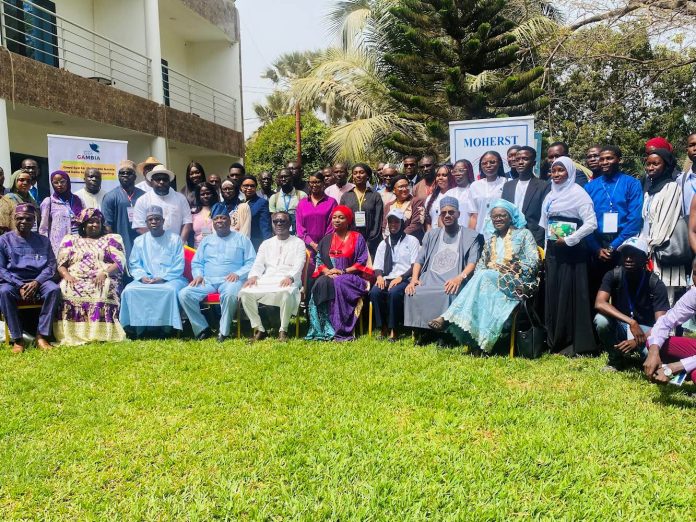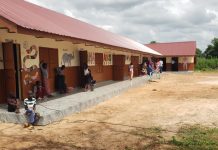By Mariama Marong
In a major leap toward digitizing higher education, the Ministry of Higher Education, Research, Science and Technology (MoHERST) has officially launched the country’s first-ever mobile application, known as TITA, designed to modernize learning systems for students, lecturers, and university administrators across public tertiary institutions.
Speaking at the launch ceremony, Professor Pierre Gomez, Minister of Higher Education, hailed the introduction of the TITA Mobile App as a transformative moment for the education sector. He emphasized that the app is a significant step toward improving learning efficiency and accessibility.
“TITA is a universal digital service providing a range of services for students at higher learning institutions. It also seeks to enhance entrepreneurship by offering innovative support to businesses,” Minister Gomez said. “The TITA App is purposely meant to transform higher education at a systemic level.”
Describing the mobile app as fast and efficient, Gomez highlighted that it aligns with the Ministry’s broader transformative agenda to improve education quality and foster skills development. “It’s a paradigm shift from a manual operating system to a technology-driven approach that enables students and lecturers to engage more efficiently and quickly,” he added.
Outlining its benefits, Minister Gomez explained that the TITA App will allow students to access timetables, register for courses, pay tuition fees, access student portals, and much more. University administrators will also be able to monitor lecturers’ workloads, while lecturers can use the app to facilitate smooth and interactive learning experiences.
In addition, the app will include an entrepreneurship training component aimed at nurturing business skills among students. Minister Gomez urged all users—students, lecturers, and administrators—to fully embrace the platform and take ownership. “If people don’t take ownership of the opportunity by using the App, it will just hang there. It is important to take advantage of it and utilize it well,” he said.
Permanent Secretary Jainaba Jagne emphasized the role of artificial intelligence within the TITA App, noting that it will help students register courses, access timetables, submit assignments, and participate in academic discussions. Administrators, she added, will be able to monitor lecturer performance and workload seamlessly.
Jagne further revealed that the app comes at no cost to students or institutions, as revenue will be generated through advertisements. “This is in line with the government’s development agenda to make academic institutions not just centers of learning, but revenue-driven as well,” she said. She described the TITA App as a bold and timely step toward providing the right digital tools for the academic journey.
Aisha Aminu Mohamed, a representative of TITA from Nigeria, explained that the app was designed in three distinct dimensions—for students, lecturers, and administrators—to meet the specific needs of each group. “TITA is a smart application platform that solves real problems. It will enhance smarter education, simplify learning processes, and foster stronger connections across campuses,” she concluded.
The launch of the TITA Mobile App marks a major milestone in the digital transformation of Gambia’s higher education sector, offering a smarter, faster, and more connected learning environment for all.



















